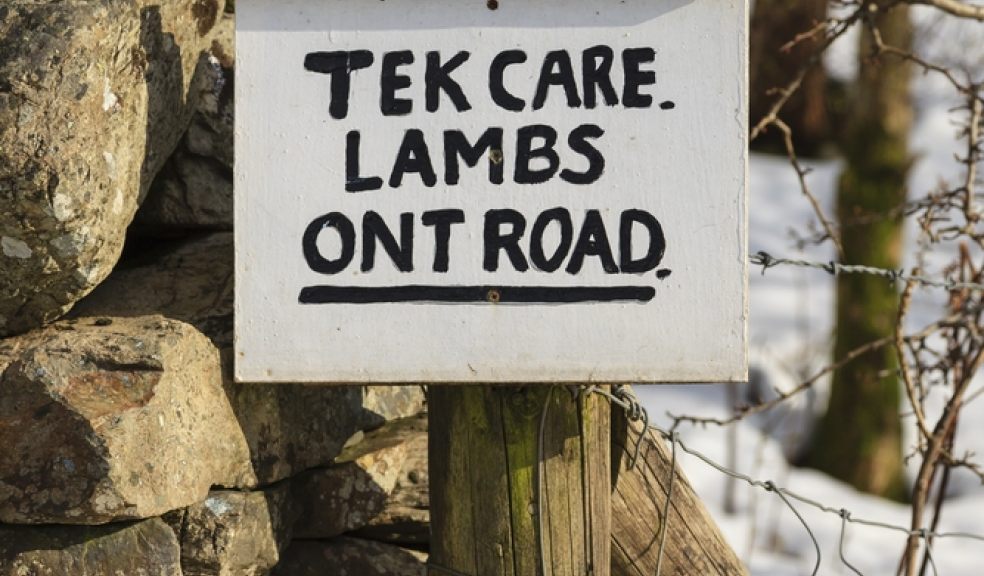
Our accent is nation's 3rd favourite
A new study published today by Travelodge into the nation’s regional dialects has found that the West Country accent is the nation’s third favourite, but that Britons are totally clueless when it comes to identifying British dialects.
Despite nearly half (48%) of adults reporting that regional dialects are a unique part of Britain’s heritage, the survey found that in many cases we are better at understanding foreign languages than our own dialects.
The study of 2,000 British adults investigated the nation’s knowledge of regional dialects and revealed that Britons travelling within the UK often face a bigger language barrier compared to when they travel overseas.
Although 68% of people in Exeter say accents are a unique part of our heritage, when tested, more can correctly identify and recognise ‘Hello’ in Spanish and Italian then they can in traditional Yorkshire or London dialects. When asked, 88% of people in Exeter correctly identified ‘Hola’ in Spanish and 74% understood ‘Ciao’ in Italian, compared to 59% who identified a ‘Ey Up’ greeting from Yorkshire and just 55% who recognised ‘Wotcha’ from London. The same number of people in Exeter (19%) can correctly identify ‘Hello’ in Turkish (Merhaba) as those who understand ‘Dydh ha’ in Cornish.
Even when it comes saying goodbye, the same number of people in Exeter understand ‘Au Revoir’ in French as they do the commonly-used ‘Ta-ra’ (90%), and more people recognise the German ‘Auf Wiedersehn’ (78%) than they do the Yorkshire farewell of ‘Sith-ee’ (44%) or even the Scottish goodbye, ‘Cheerio the nou’ (33%).
Although the traditional ways of saying thank you such as ‘ta’ and ‘cheers’ are universally recognised, 90% of people in Exeter know how to say thank you in Spanish (Muchas Gracias) compared to just 34% who know that ‘Diolch’ is the Welsh for thank you.
Despite the lack of awareness of regional dialects, the report found that 62% of people in Exeter say more must be done to preserve them. On the back of this, and in a bid to help the nation learn more about our regional dialects when visiting popular UK locations, Travelodge has developed a series of regional lingo guides for the West Country and the following locations: Scotland, Yorkshire, Newcastle, Lancashire, Liverpool, Midlands, London, Cornwall and Ulster. The Travelodge “Lingo Guides” can be downloaded for free at www.travelodge.co.uk under the news and offers section.
Shakila Ahmed, Travelodge Spokeswoman, said: “We’re very lucky to have such a rich diversity of regional dialects and languages spoken across the UK. However our research shows that we’re unaware of many dialects, so we are calling on people to get up and go to learn more about them, and we have developed a set of guides to help with that. The beauty of the UK is that you can travel a short way from home to experience very different regional dialects, and our guides have been designed to help people do that.”
Paul Kerswill, Professor of Sociolinguistics at the University of York and an expert on Multicultural London English, said: “It’s great that Travelodge has taken this initiative to help raise awareness of both our regional dialects and our regional languages. We live in a globalised world and many Britons have adopted terms, such as ‘Ciao’, into their everyday speech, whilst our local dialects die out.
“Britons need to maintain the phrases that survive to ensure they continue to be a source of local identity. A lot of people feel a sense of pride in their speech, and we should celebrate that.”
The findings of the Travelodge report has helped raise awareness of the meaning behind our regional dialects and our regional languages. We live in a globalised world and Britons have adopted many terms, such as ‘Ciao’, into their everyday speech whilst our local phrases die out.
“Britons need to maintain the regional phrases that survive as they continue to be a source of local identity. The same goes for all our dialects and languages, too, including those that were brought here from overseas. A lot of people feel a sense of pride in their speech, and we should celebrate that.”
The study also reveals the nation’s favourite dialects, with the famous Geordie accent topping the list. Spoken by Cheryl Fernandez-Versini, Ant & Dec, and comedian Ross Noble, the Geordie accent is described as ‘friendly’ and ‘upbeat’, and phrases in the Travelodge guide include popular Geordie phrases such as: Howay Man (Come on), Haddaway (No way) and Geet Walla (Very Very Large).
The Yorkshire dialect, described as ‘warm’ and ‘genuine’ is voted as the nation’s second most popular accent. This accent is synonymous with no-nonsense ex-cricketer Geoffrey Boycott as well as Girls Aloud’s Kimberley Walsh and phrases in the Travelodge guide include Sith thee (Good bye), Ee By Gum (Shock) and Put Wood in th’ole (Close the Door).
The West Country dialect, which originates from counties in the South West of England and is famous for its pronounced “r’s” was described as ‘witty’ and ‘exciting’, and was voted the third most favourable dialect. Celebrities from the region include The Office writer Stephen Merchant, comedian Russell Howard and Great British Bake Off star Mary Berry. Phrases associated with the dialect in the guide include: Gurt Lush (Really good) and Tiswas (Confused).
At the other end of the scale, the Essex dialect just did not have the ‘reem’ factor as it topped the list of least favourite dialects. Made famous by the popular reality
show TOWIE. The dialect introduced the nation to popular phrases such as ‘well jel’ (being jealous), ‘shuuuuut uuuuup’ (No Way) and ‘Marbs’ (Marbella, Spain).
The Birmingham accent came second in the listing for the nation’s least favourite accent. The accent featured recently in the hit series Peaky Blinders and is also the accent of TV personality Emma Willis, West Bromwich comedian Frank Skinner and actress Julie Walters. Local phrases in this part of the country include island (a roundabout) and a cob (bread roll).
The next least-favoured dialect in the list is Cockney, the rhyming slang vocabulary made famous by Only Fools & Horses, Kathy Burke and Ray Winstone.













